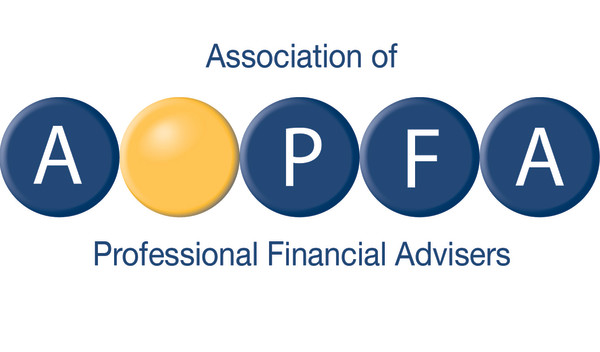

Like Theresa May's calling of a snap election last month, news that two high-profile financial industry bodies were poised to merge had not been ruminated on for months in the pages of the business press.
Last summer’s preliminary talks between the Wealth Management Association (WMA) and adviser representative Association of Professional Advisers (Apfa) meant that the deal had been in the works for almost a year without the usual round of gossip around the water cooler or over Friday night drinks. Instead the announcement was left to a letter to each body’s membership base to announce the two bodies were merging to create the Investment Management and Financial Advice Association (Imfa).
Although mainly running at a profit, Apfa had been struck with mixed financial returns – somewhat ironic for a body representing financial specialists. The merger announcement came two years after the trade body posted a £30,080 loss for the year to the end of June 2015.
While Apfa managed to turn it around and report a £126,917 profit for the year to the end of June 2016, for the year to the end of June 2014, the trade body only managed to post a profit of £29,253 and for the year ending June 2013 posted a profit of £117,337.
Instead of a combined management approach from the WMA’s Liz Field and Apfa’s Chris Hannant the responsibility of heading the combined organisation will fall to Ms Field with Mr Hannant remaining as a “strategic advisor”
Ms Field said: “[Chris] is staying on for up to a year. Obviously, I can not speak for his personal aspirations or thoughts, but certainly we would want him to stay so he can help with the transition and that is certainly the discussion that we’ve had with him.”
Mr Hannant himself said that when discussing the deal his bottom line was always to ask if the deal made sense for his membership.
“The conclusion we reached was that it would, and then everything sort of flowed from that,” he said. “You obviously work out the list of things, like the name, how everything gets structured and the legal nitty gritty, but the bottom line is, will it improve things?”
Apfa was established in 1999, and was originally called the Association of Independent Financial Advisers (Aifa). It rebranded in 2012 after the regulator introduced changes to the definition of independent and restricted advice.
The WMA was set up in 1990 and was initially called Association of Private Client Investment Managers & Stockbrokers before rebranding in 2013.
The official line is that the deal between the WMA and Apfa’s is a “merger” and the WMA has made it clear that no money changed hands as part of any form of management buyout. Management speak was also carefully worded on launch with insubstantial phrases such as “merger synergies”.
However, Ms Field was quick to clarify: “Three or four times [the WMA is] in and out of the FCA a week and Apfa is also at the FCA on its issues, so we end up going to quite a lot of the same meetings, particularly FSCS levy, the Financial Advice Market Review and we thought, you know what, we can save some resources here with instead of two people attending, only one needs to.”
Current fee structures at Apfa are guaranteed and will not change until June 2018 when there will be a review of the situation, which raises the possibility of an overhaul of the way advisers will be billed for membership of the expanded body.
At the moment, fees for Apfa rely on the number of registered individuals at an adviser firm. For companies with 10 or fewer employees the company base fee is £245 a year plus £116.50 for each individual under a total of 10. More than ten incurs an addition £68 individual charge. This is in comparison to the WMA which bases its fees on company turnover.
Despite the usual round of cynicism from the adviser community, with one barbed intermediary comment describing the move as “about as useful” as a town merging with one of its suburbs, Ms Field pointed out that the addition of the Apfa and its staff and members will combine much needed skill sets.
She said: “For a start we haven’t got any financial advice and planning policy experience and Apfa have got it in absolute spades.
“As a bigger organisation, we’ll be able to do much more with our resources. We’ll be able to free up some time and be able to achieve more with that”, she added.
Reacting to a question referencing Apfa’s financial performance, Ms Field is quick to correct. “This is not just about finances, we have been investing in the WMA and yes we do well for ourselves and we have substantial reserves, but equally Apfa posted a profit last year. As a bigger organisation, we’ll be able to do much more with our resources. We’ll be able to free up some time and be able to achieve more with that.”
Garry Heath, director general of competitor intermediary trade body Libertatem, said that the merger between the two groups had been “coming down the road” for some time and that in his view it was “completely inevitable”.
He indicated that a loss in revenue and a contracting membership could have been the issue that had now led to this move and questioned whether merging the two groups was a viable proposition.
“My view is – and it’s happened so many other times – organisations cease to become viable they then merge with another organisation. Once merged you’re going to have half a voice of a bigger body, and I would suspect that for the size of this new body, for every pound that an Apfa member puts in – assuming they stay, the wealth managers are going to be putting in a lot more.
“At a time when everybody is arguing who’s good value and who’s not good value, where is this new body going to sit? Why will the advisers of Britain suddenly leap to attention and have half a voice as part of a bigger body?” he asks.
Merging under the umbrella brand will take effect on 1 June this year subject to approval of all members of both industry bodies and barring any revolt, but this is unlikely as trade boards have already recommended the proposed merger and Imfa is expected to be financially in the black on a standalone basis by the end of the first year.
Ms Field said that once this process is approved the newly formed Imfa will look further to the future in representing adviser and wealth manager interests with a sorely needed youth and diversity recruitment focus and a concentration on introducing or returning mothers to the work place in the intermediary sector, further kickstarting the debate on whether robo-advice is a threat or an opportunity and increased government and FCA lobbying on behalf of advisers through her soon to be combined team.
Apfa’s proposed long-standing “value of advice” report will also be delivered.
And Ms Field said that was what she was concerned with, a focus on the future of this newly merged entity and how it will serve advisers.
“I think there are some real hidden gems within the financial advice space that I want to draw out and working with the sector, actively promote that.”
In conclusion she added: “We need to really big up and promote this sector.”
Mark Banham is a freelance finance journalist
Key points
The WMA and Apfa have announced a merger to create the Investment Management and Financial Advice Association.
Apfa has had mixed financial returns over the past few years.
Some see the merger as inevitable.



